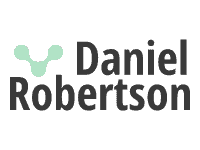Over the last few years, I have specialised in what can loosely be called “website optimisation”. Across the online industry, this might variously be known as “conversion rate optimisation” (CRO), “revenue optimisation”, or more specifically “multivariate testing” or even “web analytics”.
Now, many people might recognise these as distinct roles or skills, but for me they all go hand-in-hand. What is the purpose of analysing website information without acting on the insights to enhance and improve? Why act, even based on data hypotheses, without trying multiple approaches and evaluating the best?
Of course, “the best” will almost certainly not remain the best for long and ongoing optimisation is essential for any organisation from sole traders to international corporations. One of the myriad benefits of having an online presence is that unprecented levels of trialling marketing and sales approaches (copy, tone, brand, imagery, design, UX, pricing, offers, personalisation, behavioural targeting, etc. etc.) are now possible with minimal risk to the business.
My point here is that we need to avoid over-relying on experts to help us achieve this level of continuous optimisation. For any online organisation, web analytics is a must. There are free tools of remarkable sophistication available (Google Analytics, Piwik, Open Web Analytics, ClickTale), although the most important thing is to master the basics.
For me, if you are a digital marketer, content producer, or anyone who communicates through online media, using web analytics is akin to using a tool like Microsoft Word, Excel, or an email program. Standard, basic, expected skills for a business role. Better to produce just what you need in terms of content or user experience and optimise it, rather than over-produce and keep missing the mark.
Of course, like any tool or skill, you can take it as far as you want to and most online communicators do not have the time to truly master the potential of web analytics and optimisation. This is where people like me step in (for how much longer?) offering deep-dive analysis, technical support to set up the complex aspects of analytics and split testing, and often simply evangelising this approach and training organisations to do it themselves. There are always practical limitations, which is where we can also offer some insight from experience. We can never guarantee what works and what doesn’t, but we can improve our odds of successful optimisation under time or traffic constraints (I have to stick up for myself a little here :)
Even though it would put me out of a job, my vision is of a content-optimisation ecosystem where everyone takes responsibility for enhancing what they do, from the ground up and based on hard data coupled with exploration. “Website optimisers”, if they still exist, may then be limited to niche strategic roles or indeed help the business owners optimise overall strategy, rather specific tactics in narrow channels. More and more I see how insights from other channels can help online activity, and vice-versa. In that case bring on the business optimisers!
Sadly, a lot of my and colleagues’ time across the industry is still spent on “pulling out some quick numbers” from Google Analytics, delivering the dreaded “management information” dashboards, and carrying out the simplest optimisation tasks. Use us effectively! The business certainly won’t regret it.
[If you would like some advice in this area or a consultation about how I can help your organisation online, contact me at [email protected] or just leave a comment.]
